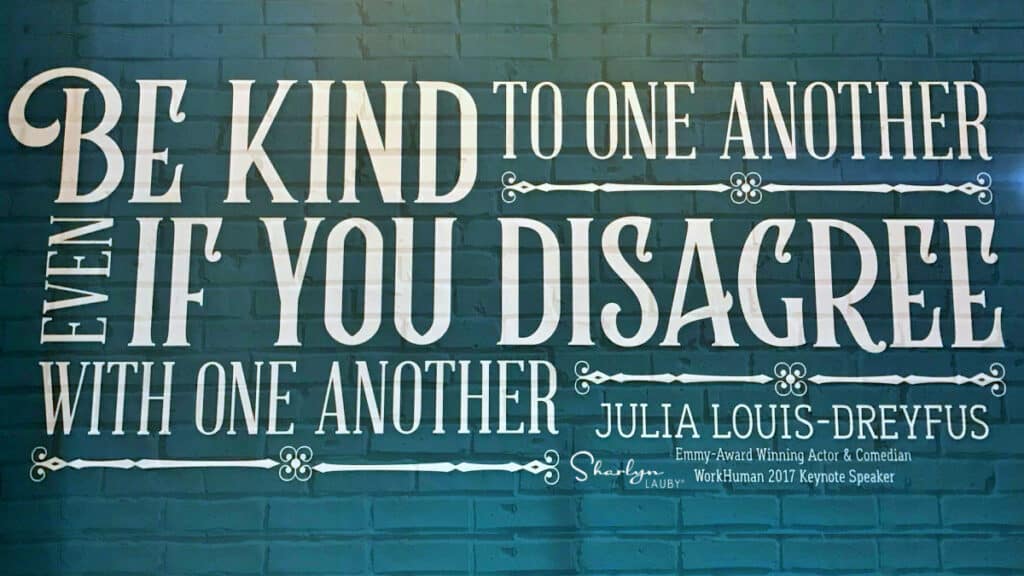Managers: You Can Give Bad News to Employees with Respect

During this time, organizations are in different places when it comes to their employees and employment. By this I mean some companies are hiring, where others are cutting hours, and/or considering furloughs and layoffs. In fact, it could also be possible that one department or division of the organization is cutting back while another has a lot of work and not enough employees.
Unfortunately, regardless of where your organization is during this time, it doesn’t make you immune to having to deliver bad news. This could be a real struggle for organizations and managers that have never really had to deliver bad news before. Or they haven’t had to deliver bad news in quite some time.
But it is possible to deliver bad/sad news in a way that’s respectful to employees. This is an area where human resources departments can help. We can listen and coach managers through the process of crafting and delivering tough messages. The way to do it is by keeping the basic tenets of the employee experience in mind.
Be honest and transparent. Obviously, employees want answers about their job and security. But frankly, sometimes organizations don’t know whether they’re going to have to cut hours, do layoffs, or furlough employees. It might be tempting to sugarcoat an answer. Employees need to hear the truth. If you don’t know the answer, don’t make one up. And if you need some guidance, call your legal counsel for assistance about what you can and shouldn’t say.
Be respectful. Managers know that delivering bad news is hard. Human nature sometimes tells us to deliver the message quickly because it doesn’t drag out the negativity and it makes us feel better. Let me deliver some tough love here: this isn’t about us feeling better. Managers should communicate messages to employees in a way that makes the employee feel good about their contributions to the company. In the case of this pandemic, the company and the employee did not create the situation. But they still need to deal with it. Let the employee know that their work was appreciated and valued.
Be helpful. This is another area where HR can get involved. If the organization has resources, use them to help employees. I’ve seen companies organize job fairs, offer outplacement assistance, and bring in resume writers to conduct workshops. Organizations have also extended certain employee benefits to help with the transition such as use of a company-issued cellphone. If your company has limited resources, see if there are community-based organizations, like your local workforce development board, that can offer assistance.
Be there for employees. We’ve already heard the horror stories of layoffs happening en masse via email or Zoom. That’s definitely not in the best practices playbook. I’m not advocating the approach, but organizations are also dealing with physical distance guidelines that we need to observe. This is another time to loop in your legal counsel to figure out the best way to deliver unpleasant news at the organizational and individual level. HR and management will want to work together to make sure employees hear the message from the right person. There’s nothing worse than hearing your job is being eliminated from a coworker. Trust me on this one.
Be empathetic. The phrase “We’re in this together.” has been said a lot. And it’s true. What we’re experiencing now is impacting every level of the organization. Every job. Every person is being impacted by what’s happening. I hate to say it but it’s possible that the manager who is telling employees that their job is being eliminated today will have their job cut soon. We all understand the frustration of things not being “normal” and it’s okay to be empathetic. In fact, letting employees know that you understand is one of the most human things you can do.
Through these tough times, organizations need to remember the value of their brand. Companies didn’t spend huge amounts of time and resources to build a great place to work only to have it disappear through poor messaging. Yes, the bottom-line is important but people are more important. Because companies will need employees to help them bounce back from this. And having a negative reputation won’t help. Will employees be thrilled if they hear bad news? No, of course not.
Will they respect that the company treated them with respect? Yes. Yes, they will.
Image captured by Sharlyn Lauby while attending the WorkHuman Conference in Austin, TX
24